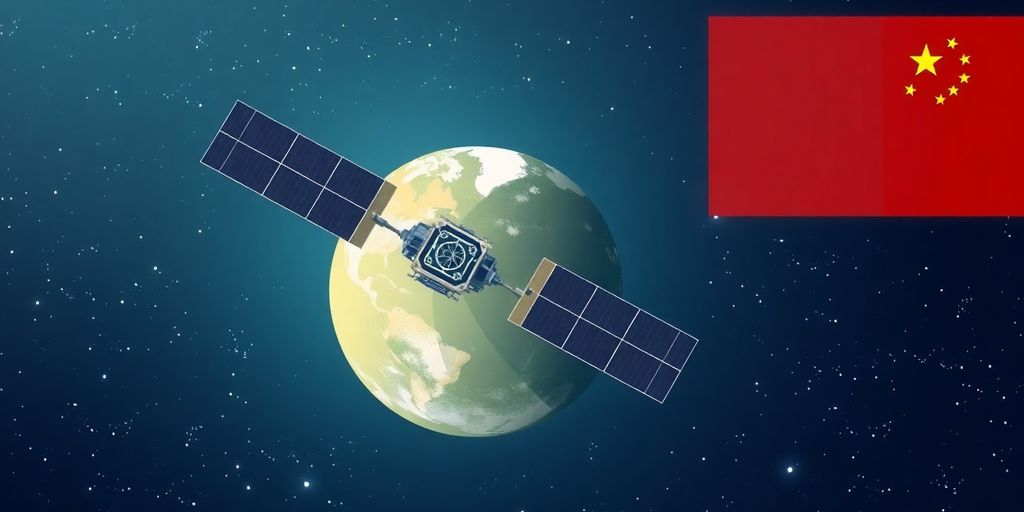Prime Minister Shehbaz Sharif has announced Pakistan’s intention to deepen its collaboration with China in the realm of space technology. This initiative comes as both nations recognize the importance of advancing their capabilities in satellite technology and telecommunications, particularly in light of China’s rapid advancements in space exploration.
Key Takeaways
- Pakistan aims to enhance cooperation with China in space technology and telecommunications.
- A delegation from Galaxy Space, a Chinese company, expressed interest in investing in Pakistan’s space sector.
- Pakistan plans to send its first manned mission to China’s space station by 2026.
- New regulations for space activities in Pakistan were introduced in April 2024.
Strengthening Bilateral Cooperation
During a meeting with a delegation from Galaxy Space in Islamabad, Prime Minister Sharif emphasized the significance of space technology for Pakistan’s development. He described China as Pakistan’s "most reliable and strategic partner" and expressed eagerness to collaborate on various projects, including satellite-based internet services.
The delegation, led by Galaxy Space Chairman Xu Ming, showed a strong interest in investing in Pakistan’s burgeoning space technology industry. This partnership could lead to joint ventures with local institutions and private telecom companies, fostering growth in the sector.
Upcoming Manned Mission to China’s Space Station
In a significant development, Prime Minister Sharif revealed plans for Pakistan’s first manned mission to the Chinese Space Station (CSS). This mission will involve training two Pakistani astronauts at the Astronaut Centre of China, with one astronaut designated as a scientific payload specialist. The training is expected to be completed by 2026, aligning with CSS’s mission schedule.
The astronauts will conduct advanced scientific experiments across various disciplines, including:
- Biological and medical sciences
- Aerospace
- Applied physics
- Fluid mechanics
- Space radiation
- Ecology
- Material sciences
New Regulations for Space Activities
In April 2024, Pakistan introduced the ‘National Space Activities Rules 2024’, which govern space activities conducted within its territory and by its registered entities abroad. These regulations empower the National Space Agency (NSA) to engage with foreign satellite operators for acquiring and distributing satellite data in Pakistan.
Currently, several operators are providing satellite-based internet services globally, with new entrants like Starlink, Amazon, and OneWeb looking to expand their reach. The NSA has indicated that Chinese companies are also preparing to enter Pakistan’s internet market, which could enhance connectivity in remote areas lacking traditional infrastructure.
Conclusion
Pakistan’s initiative to strengthen ties with China in space technology marks a pivotal moment in its technological advancement. By collaborating with a leading space power, Pakistan aims to enhance its capabilities in satellite technology and telecommunications, paving the way for future innovations and scientific exploration. This partnership not only signifies a commitment to technological growth but also reinforces the strategic alliance between the two nations in the global arena.
Sources

Founder Dinis Guarda
IntelligentHQ Your New Business Network.
IntelligentHQ is a Business network and an expert source for finance, capital markets and intelligence for thousands of global business professionals, startups, and companies.
We exist at the point of intersection between technology, social media, finance and innovation.
IntelligentHQ leverages innovation and scale of social digital technology, analytics, news, and distribution to create an unparalleled, full digital medium and social business networks spectrum.
IntelligentHQ is working hard, to become a trusted, and indispensable source of business news and analytics, within financial services and its associated supply chains and ecosystems











